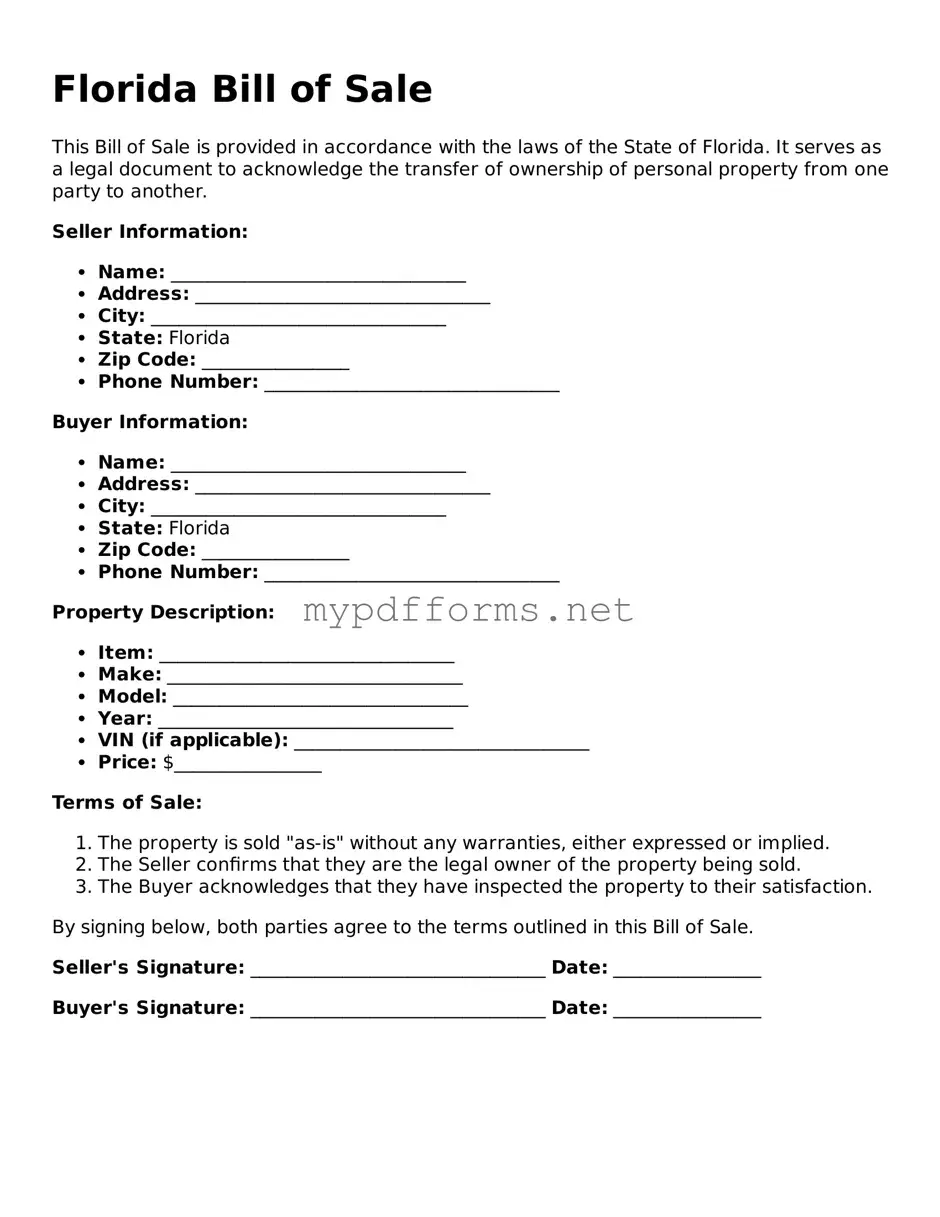The Florida Bill of Sale form is similar to a Vehicle Title Transfer form. Both documents serve to officially transfer ownership of a vehicle from one party to another. The Vehicle Title Transfer form provides essential information about the vehicle, including the VIN, make, and model. This ensures that the new owner has the legal right to register and use the vehicle. Both documents require signatures from the seller and buyer, affirming that the transaction is legitimate.
Another document akin to the Bill of Sale is the Lease Agreement. While a Bill of Sale is used for the sale of property, a Lease Agreement outlines the terms under which one party rents property from another. Both documents protect the rights of the involved parties. They specify important details such as the duration of the agreement, payment terms, and responsibilities. Clarity in these agreements helps prevent disputes down the line.
The Purchase Agreement is also similar to the Bill of Sale. This document outlines the terms of a sale, including price, payment method, and delivery details. Like the Bill of Sale, it serves as proof of the transaction. Both documents require signatures to confirm that both parties agree to the terms. They are essential for ensuring that the transaction is legally binding and enforceable.
A Warranty Deed shares similarities with the Bill of Sale in the context of real estate transactions. A Warranty Deed transfers ownership of property and guarantees that the seller has the right to sell it. While the Bill of Sale is often used for personal property, the Warranty Deed is specific to real estate. Both documents provide a record of ownership and protect the interests of the buyer.
The Affidavit of Title is another document related to the Bill of Sale. This affidavit is a sworn statement by the seller, confirming that they own the property and that there are no liens against it. It provides additional assurance to the buyer, similar to how a Bill of Sale confirms the transfer of ownership. Both documents contribute to the buyer’s confidence in the transaction.
For those engaging in a transaction involving personal property, completing a comprehensive General Bill of Sale form can ensure that both the buyer and seller clearly understand their rights and obligations, providing legal clarity and security in the sale process.
The Receipt for Payment can also be compared to the Bill of Sale. While the Bill of Sale confirms the transfer of ownership, a Receipt for Payment serves as proof that the buyer has paid for the item. Both documents are important for record-keeping and can be used in case of disputes. They help establish a clear understanding of the transaction between the parties involved.
Lastly, the Gift Deed is similar to the Bill of Sale in that it transfers ownership of property. However, a Gift Deed does not involve a sale; instead, it is a voluntary transfer without compensation. Both documents require the consent of the parties involved and serve as legal proof of the transfer. They ensure that the new owner has clear rights to the property.

